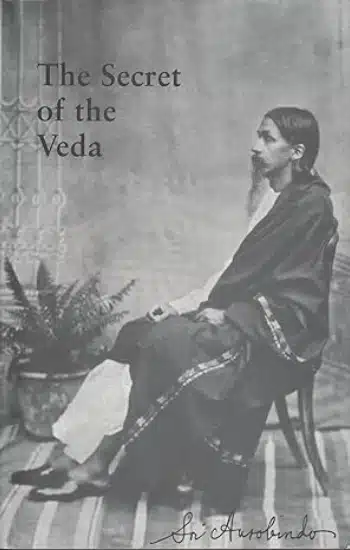THE SECRET OF THE VEDA
Publisher:
| Author:
| Language:
| Format:
₹360 ₹324
Save: 10%
In stock
Ships within:
In stock
ISBN:
Page Extent:
A study of the way of writing of the Vedic mystics, their philosophic system, their system of symbols and the truths they figure, and translations of selected hymns of the Rig-Veda.
“Is there at all or is there still a secret of the Veda?” Sri Aurobindo asks in the opening sentence of this book. He examines the ritualistic and naturalistic theory of nineteenth-century European scholars and then sets forth his own view: “The hypothesis I propose is that the Rig-veda is itself the one considerable document that remains to us from the early period of human thought of which the historic Eleusinian and Orphic mysteries were the failing remnants, when the spiritual and psychological knowledge of the race was concealed, for reasons now difficult to determine, in a veil of concrete and material figures and symbols which protected the sense from the profane and revealed it to the initiated. To disengage this less obvious but more important sense [of the Vedic ritual system] by fixing the import of Vedic terms, the sense of Vedic symbols and the psychological functions of the Gods is thus a difficult but necessary task, for which these chapters and the translations that accompany them are only a preparation.”
Table of Contents:
- The Problem and its Solution: A Retrospect of Vedic Theory
- Modern Theories
- The Philological Method of the Veda
- Agni and the Truth
- The Victory of the Fathers
- The Conquest over the Dasyus
- Selected Hymns
- Hymns of the Atris
- “The Origins of Aryan Speech”
A study of the way of writing of the Vedic mystics, their philosophic system, their system of symbols and the truths they figure, and translations of selected hymns of the Rig-Veda.
“Is there at all or is there still a secret of the Veda?” Sri Aurobindo asks in the opening sentence of this book. He examines the ritualistic and naturalistic theory of nineteenth-century European scholars and then sets forth his own view: “The hypothesis I propose is that the Rig-veda is itself the one considerable document that remains to us from the early period of human thought of which the historic Eleusinian and Orphic mysteries were the failing remnants, when the spiritual and psychological knowledge of the race was concealed, for reasons now difficult to determine, in a veil of concrete and material figures and symbols which protected the sense from the profane and revealed it to the initiated. To disengage this less obvious but more important sense [of the Vedic ritual system] by fixing the import of Vedic terms, the sense of Vedic symbols and the psychological functions of the Gods is thus a difficult but necessary task, for which these chapters and the translations that accompany them are only a preparation.”
Table of Contents:
- The Problem and its Solution: A Retrospect of Vedic Theory
- Modern Theories
- The Philological Method of the Veda
- Agni and the Truth
- The Victory of the Fathers
- The Conquest over the Dasyus
- Selected Hymns
- Hymns of the Atris
- “The Origins of Aryan Speech”
About Author
Returning to India in 1893, Sri Aurobindo dedicated thirteen years to service in the Princely State of Baroda, working for the Maharaja and as a professor in Baroda College. Simultaneously, he played a key role in a revolutionary society, actively participating in clandestine preparations for an uprising against British rule.
Following the Partition of Bengal in 1906, Sri Aurobindo moved to Calcutta, swiftly emerging as a prominent leader in the Nationalist movement. He boldly advocated for complete independence for India through his newspaper, Bande Mataram. Despite facing legal challenges, including sedition and conspiracy charges, he was consistently released due to insufficient evidence.
Sri Aurobindo's spiritual journey began in 1905, and by 1908, he experienced the first of several profound spiritual realizations. In 1910, he withdrew from politics, relocating to Pondicherry to fully immerse himself in inner spiritual exploration. Over forty years in Pondicherry, he developed the Integral Yoga, a unique spiritual practice aiming not only at liberating consciousness but also transforming human nature. In collaboration with the Mother, his spiritual companion, Sri Aurobindo founded the Sri Aurobindo Ashram in 1926.
Among his notable writings are "The Life Divine," "The Synthesis of Yoga," and "Savitri." Sri Aurobindo's physical existence came to an end on December 5, 1950, leaving behind a legacy of spiritual wisdom and transformative practices.
Reviews
Clear filtersThere are no reviews yet.
YOU MAY ALSO LIKE…
Seed Sovereignty, Food Security: Women in the Vanguard
Save: 30%
The Light Within: A Different Vision of Life
Save: 25%




Reviews
Clear filtersThere are no reviews yet.